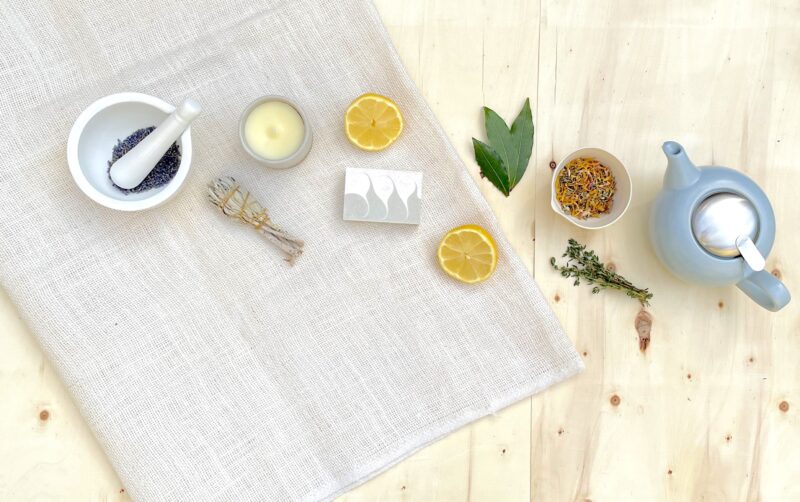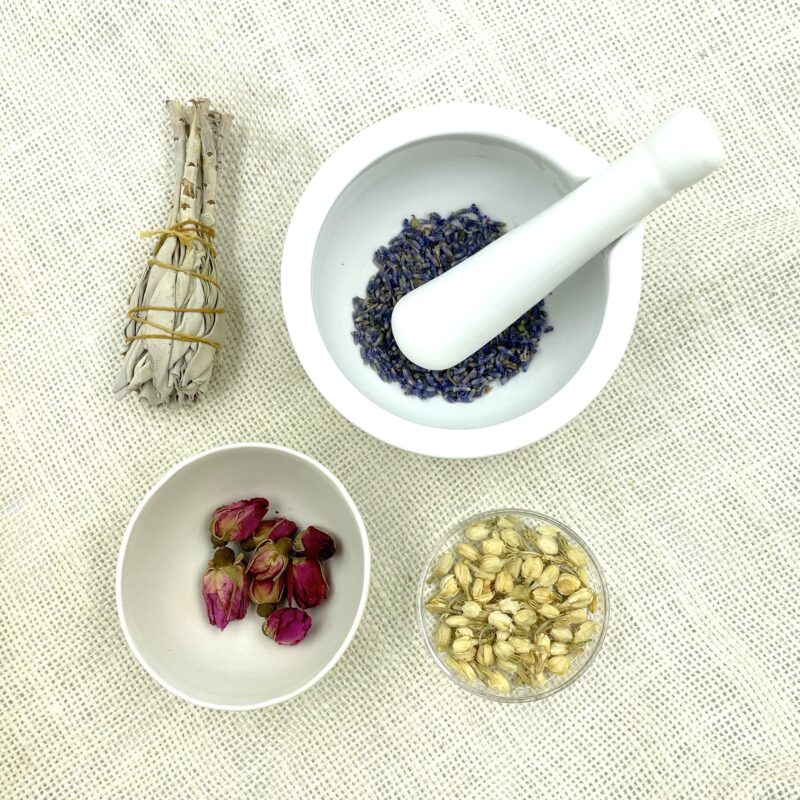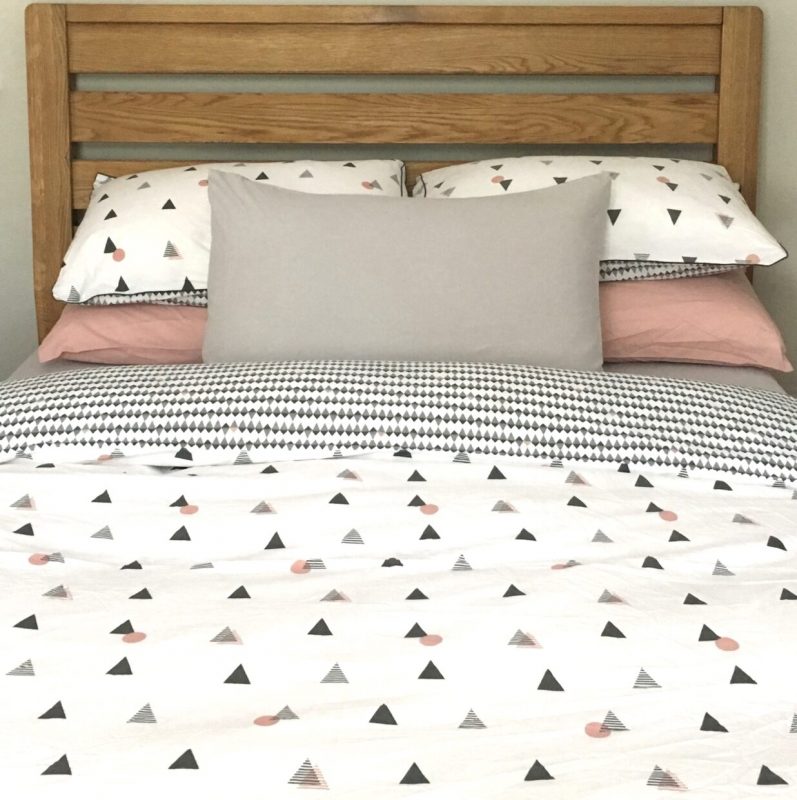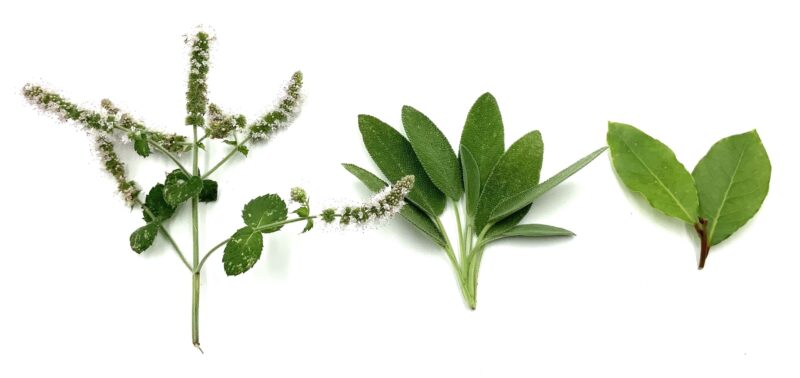As a part of my quest to alleviate and improve my skin, I decided to try alternative therapies when the conventional route offered no relief. I discovered a local therapist who combined nutritional therapy and acupuncture, an intriguing combination, but I was willing to try anything! I’d always associated acupuncture with pain relief but had never considered it to alleviate skin conditions or appreciated its balancing effect on the body (as a whole).
If memory serves me right, I cannot remember a drastic improvement in the overall appearance of my rosacea; however, I did experience several health improvements (many of which were unexpected) and thought it was worth sharing my experience.
My monthly cycle had been erratic and absent since beginning menstruating around age fourteen (approximately one period every three months). I was prescribed the contraceptive pill by my GP for acne and irregular menstruation; it was highly likely my cycle would never be regular and would be the only way to “falsely” induce a period every month. I believe my absent periods could have been down to low body weight or chronic stress (maybe a combination of the two).

Back to the acupuncture: it was a relaxing experience, having acupuncture needles tapped into various ‘acupoints’ (some of which hurt and induced a deep throbbing sensation for a few seconds, particularly the point between the eyes, in the centre of my scalp, close to the ankle bone and between the thumb and forefinger), and then being left for around an hour to relax, lying down in a darkened room with calming music playing in the background, whilst the needles worked their ‘magic’.
The best way to describe the experience was the sensation of an intense amount of heat leaving my body through my fingers and toes: constant waves of heat flooding out. This sensation lasted for many weeks of treatment; however, every night post-acupuncture, I slept deeply (a rarity at the time, as I suffered from insomnia and night sweats, which also vanished. Despite not seeing a drastic visual improvement in my skin, the sensations of heat and itchiness had disappeared but most intriguing was that for the first time, my menstrual cycle had become regular: occurring once per month. The therapist advised that I stop the pill (as it was not needed for contraception at the time, not taking it was preferential). I was unaware that it took approximately three months for the body to rid itself of a medical substance. The therapist reassured me that my body would purge itself of the contraceptive pill, and my cycle would re-set – no doubt this had occurred!

Explaining Bodily Mechanisms
Despite my skin not reverting to how it was pre-rosacea from an aesthetic perspective, I had the desire to conduct some reading and research into the mechanisms of acupuncture and a probable explanation behind the positive bodily changes I had experienced. Let’s look at inflammation as a whole entity and what (if any) impact acupuncture can potentially have. Acupuncture reduces inflammation through several pathways; firstly, it reduces swelling through the HPA axis (explained in a previous post). Acupuncture has an antihistamine effect on the body, reducing pro-inflammatory cytokines. As concluded in the medical journal ‘Evidence-Based Complementary and Alternative Medicine’ the inflammatory-reducing mechanisms of acupuncture are due to a complex combination of neuro-endocrine-immunological processes. In more simple terms, a complex mix of physiological processes between the nervous, endocrine (hormonal) and immune systems. The journal goes into great detail and focuses specifically on acupuncture and its impact on allergic rhinitis (allergy-induced sneezing, from which I have suffered for as long as I can remember! – which can make for embarrassing and intense sneezing fit straight after eating!). Despite the journal’s focus on the allergy-related sneezing condition, there is plenty of in-depth information on the medical ‘nitty-gritty’ behind the specific physiological aspects of acupuncture. For further information, please visit this link.
Sleep Improvements
Without a doubt, acupuncture helped my insomnia: to the point where I slept right through the night, something which had not occurred for years: given I’d be awake for an average of three hours per night. The consensus behind why acupuncture may improve sleep, specifically insomnia, is due to influences on specific neurotransmitters (or chemical messengers in the brain). For more information on how acupuncture can improve sleep, there is a comprehensive article by Angelica Bottaro on Very Well Health.

Hormonal Rebalancing
A few sessions into acupuncture, for the first time, my cycle became regular. So, does acupuncture have the ability to regulate one’s periods? According to Women’s Health Melbourne, acupuncture regulates the menstrual cycle in three main ways:
- The feedback loop between the brain and ovaries is regulated, referred to as the Hypothalamic-Pituitary-Ovarian axis. If this loop is working efficiently, hormones are in a balanced state, which results in ovulation and a period.
- Acupuncture enables blood vessels to dilate, increasing blood flow to the uterus and ovaries, which allows the ovaries to be well-nourished for optimal function and the endometrial lining to thicken, resulting in menstruation.
- As acupuncture improves blood flow to the ovaries, the maturation of an egg is supported, and ovulation can occur. In addition, acupuncture triggers the release and surge of the Luteinising Hormone, resulting in the release of an egg from the ovarian follicle.
Are There Any Positive Impacts on the Skin?
Although I have focused on the underlying physiological processes behind acupuncture and its multitude of positive impacts on the body, does any evidence exist concerning its effect on skin conditions? As mentioned in Vogue Magazine, acupuncture can improve many skin complaints. In the case of rosacea, acupuncture enables the internal balance to be reset. A New York City Acupuncturist, Shellie Goldstein quoted: “Rosacea in Chinese Medicine is often related to digestion; by clearing up these internal issues, redness and irritation in the skin tissue decrease.”
Further evidence to support acupuncture, and its impact on the skin, were covered in an article posted in ‘The Village Voice’. Acupuncture readjusts the balance between the digestive, hormonal and nervous systems (which, more often than not), have been unbalanced for an extended time before a skin condition is visible. Acupuncturist Sandra Lanshin Chiu describes her personal experience with rosacea. Chinese medicine proposes that rosacea occurs because of an internal heat imbalance – with acupuncture clearing the heat blockage believed to be responsible for inflammation and fever. Diana Hermann (Chinese Herbal Medicine and Acupuncturist) stated that “acupuncture clears heat from the lungs and stomach to reduce flushing and heat rising to the face.” The heat blockage tends to be a sign that there is something malfunctioning elsewhere in the body, and this trapped heat in the face and head region results in improper circulation in the rest of the body. Typically, rosacea is not a standalone condition (other symptoms tend to occur in conjunction with rosacea).
Interestingly, the same article states that people with the highest success rates in terms of a noticeable improvement in their skin condition were those who make changes to both psychological patterns and lifestyle factors that contribute to the respective skin issue. Chiu explains that skincare is physical and emotional, “Positive, appreciative and self-loving can assist healing of the skin.”
To conclude, there is certainly evidence to suggest that acupuncture can be highly beneficial when it comes to skin conditions such as rosacea. In addition to improvements in overall appearance and comfort levels, acupuncture can have numerous benefits (without any detrimental effects; often experienced with long-term antibiotic or contraceptive pill use). In my opinion, it is worth trying if you have not done so already but bear in mind that results won’t be evident overnight: acupuncture is a long haul ‘treatment’ but so worth it!
Azoulay, M. (2020) ‘Can Acupuncture Regulate The Menstrual Cycle?’, Women’s Health Melbourne. [Online].
Available At: https://www.womenshealthmelbourne.com.au/can-acupuncture-regulate-the-menstrual-cycle/
Accessed: (17 May 2022).
Bottaro, A. (2022) 'Reasons to Try Acupuncture for Insomnia’. VeryWell Health. [Online].
Available At: https://www.verywellhealth.com/acupuncture-for-insomnia-5221486
Accessed: (16 May 2022).
Fleming, O (2016) ‘The Secret To Flawless Skin Could Lie in Acupuncture and Chinese Medicine’, The Village Voice. [Online].
Available At: https://www.villagevoice.com/2016/03/30/the-secret-to-flawless-skin-could-lie-in-acupuncture-and-chinese-medicine/
Accessed: (16 May 2022).
Hartman, E. (2016) '5 Surprising Beauty Benefits of Acupuncture', Vogue Wellness. [Online].
Available At: https://www.vogue.com/article/acupuncture-beauty-benefits-wrinkles-dull-skin-rosacea-acne-puffiness
Accessed: (17 May 2022) .
McDonald, J.L., Cripps, A.W., Smith, P.K., Smith, C.A., Xue, C.C and Golianu, B. (2013) ‘The Anti-Inflammatory Effects of Acupuncture and Their Relevance to Allergic Rhinitis: A Narrative Review and Proposed Model’, Evidence-Based Complementary and Alternative Medicine. [Online].
Available At: https://www.ncbi.nlm.nih.gov/pmc/articles/PMC3586443/
Accessed: (16 May 2022) .


